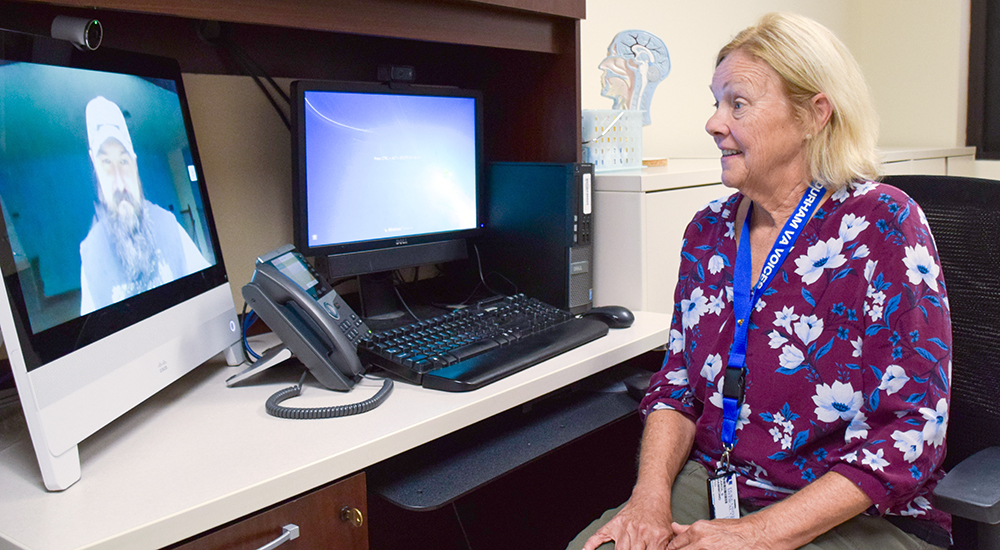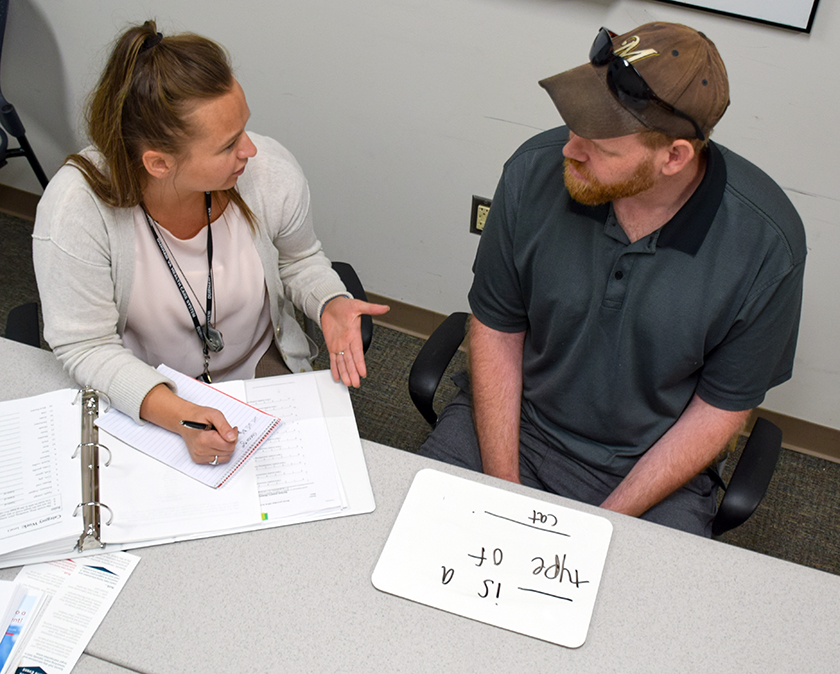When most people think of speech therapy or rehabilitation, they probably think about children learning to pronounce words correctly. In VA, speech pathologists serve Veterans and service members of all ages by treating disorders that affect the entire communication system, including the brain.
Veterans who have suffered from a trauma or illness may have problems with forgetfulness, problem-solving, responding accurately, understanding jokes, following directions or interactions with others. These may be symptoms of a cognitive-communication disorder.
The good news? With the assistance of a speech-language pathologist, Veterans can work to improve cognitive skills and learn strategies to improve their cognitive functioning and ultimately improve their quality of life.
More than 400 speech-language pathologists across VA provide screening, evaluation, cognitive rehabilitation and treatment for a broad range of communication and swallowing disorders.
“Why was I referred to speech therapy?”
Often the first question that Veterans ask when they are referred to a speech pathologist is, “Why was I referred to speech therapy?”
The Durham VA Speech Pathology Clinic is one of many VA clinics that offer rehabilitation for cognitive-communication problems where trained speech pathologists provide education, training and strategies for dealing with problems after brain injury, trauma or stroke.
Carol Smith Hammond, speech pathologist at Durham VA, begins each patient visit by asking questions, including:
- “Do you have problems with attention or memory?”
- “Do you have problems with organization or forgetting things you are supposed to do during the day?”
- “Are you struggling at work or studying for college courses?
The Veterans Dr. Hammond treats were active and successful members of the military. After the trauma or injury, they experienced mild cognitive problems. Many of these Veterans also have co-existing anxiety, depression, post-traumatic stress disorder or sleep disturbances which can disrupt a person’s ability to pay attention or concentrate.
“Patients often come to see me and are crying,” said Dr. Hammond. “They are so worried about losing their job or flunking out of school.”
Providing tools to help Veterans improve their lives
The first time Dr. Hammond meets a Veteran, she immediately provides key strategies for increasing focus and concentration. She counsels patients to “stop and plan” before starting the day or beginning a new task. She also recommends simple tools for patients to use, such as a daily planner and a whiteboard to organize each day and check off completed tasks.
In each session, Dr. Hammond also includes mindfulness training or meditation to teach patients to clear their minds of all their negative thoughts or fear of failure when tackling a difficult project or preparing for a busy day. Most patients complete an average of eight speech pathology appointments and many participate in group programs.
Recently, Dr. Hammond worked with a Veteran in North Carolina who is now a farmer. He described having to make multiple trips between his house and the farm each day because he would forget what task he was planning to do and leave objects in the wrong place.
He would become frustrated and angry with family members. After cognitive rehabilitation, he commented, “The one strategy – to stop and plan each day – has changed my life.”
Telehealth options with convenient support anywhere, any time
VA speech pathology services are available for in-person and telehealth visits. In February 2021, Durham VA provided cognitive rehabilitation using VA Video Connect technology for more than 50 Veterans. VA speech pathologists completed more than 93,000 telehealth visits in 2021 nationwide.
Veterans participating in cognitive rehabilitation range from 20 to 40. They work, attend college courses and many have young children at home. Telehealth visits provide Veterans with an easy, convenient way to access VA health care when and where they need it.
Learn more about VA’s speech-language pathology services for Veterans.
Topics in this story
More Stories
The 2024 National Veteran Suicide Prevention Annual Report provides the foundation for VA’s suicide prevention programs and initiatives.
Theranostics is a specialized field of nuclear medicine that uses a two-pronged approach to diagnose and treat cancer.
Air Force Veteran Shireta Jones overcomes obstacles with support from VA and adaptive devices to continue her passion for pickleball.








Great